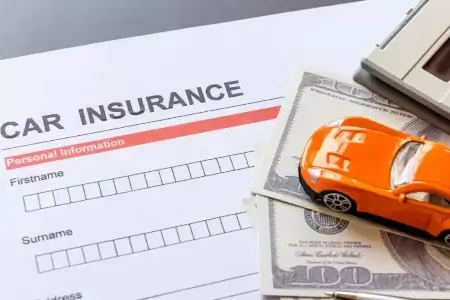10 Factors that impact Car Insurance Policy Premium
Insurance companies use a variety of factors to determine how much you will pay for your car insurance based on the level of risk to the company. Not all insurance companies consider the same factors with equal weight. This is the reason why it's important to compare rates and services of different insurance companies. Here are some main factors that determine how much your car insurance will cost.
10 Factors that impact Car Insurance Rates

1 State of residence - State regulations and risk affect rates
2 Where You Live - Urban areas have higher premiums
3 Your Age - Older age leads to lower premiums
4 Your Gender - Women generally pay lower rates
5 Your Car - Expensive cars result in higher rates
6 Driving History - Accidents and violations raise rates
7 Driving Frequency - Less driving may lower premiums
8 Your Credit Score - Poor credit increases rates
9 Coverage Limits - Higher coverage means higher premiums
10 Coverage Extras - Add-ons increase insurance costs
- State regulations and risk affect rates
Urban areas tend to have higher premiums than less congested places (i.e. suburbs). Insurance companies consider vehicle and population density, road conditions, repair rates, medical and hospital costs and the number of accidents in a particular area.
Young drivers are often considered to be a higher insurance risk than older, more experienced drivers. As a result older age leads to lower premiums. Statistically, drivers younger than 25 or older than 65 make up a larger share of people involved in accidents, and this is factored into the decision to charge higher premiums.
When it comes to Car insurance policies, women generally pay lower rates. Statistics show that young, single, male drivers suffer more than twice as many fatal accidents as females. As a result, insurance companies typically charge higher premiums for males, especially those younger than 25.
The type of vehicle, it's year, make, model and value are all factors that can affect your premium. Newer, expensive or high-performance vehicles generally cost more to repair or replace. As a result cost more to insure. Such vehicles may also be inviting targets for thieves or vandals. The less it would cost to repair or replace your vehicle, the lower the cost of your premium.
Your driving history, past accidents and violations are all considered in deciding your premium. Simply put, if you've been in multiple accidents or have violations, your cost for car insurance is likely to be higher than someone with a clean driving record.
Insurance companies consider your driving history when determining rates. If you have had accidents or received violations, an insurance company may choose to charge an extra fee, a surcharge or may even refuse to issue a policy at all, depending on the number and type of chargeable accident or ticketed serious traffic violation. Also if you're a new driver and have not had insurance before, chances are you'll pay more for car insurance.
How often do you drive? The distance you drive to work or school may affect the cost of your insurance. Someone who has a long commute to work may pay more for insurance than someone who works from home and only uses their vehicle to run errands on weekends. More miles behind the wheel mean more exposure to risk. Increasing or decreasing the number of miles driven each year can cause your premiums to increase or decrease. Also, changing vehicle usage (i.e., from personal to commercial) can affect the amount you must pay for coverage.
Poor credit increases rates. Under the Federal Fair Credit Reporting Act, credit reports can be used for insurance underwriting. However, there are factors within the credit report the insurance company may not use in their underwriting or rating when reviewing a person’s credit history. A list of these can be found in Section 626.9741, Florida Statutes.
Higher coverage means higher premiums
Add-ons increase insurance costs


Always review your policy or contact your agent to identify the limitations and exclusions of your coverage.

